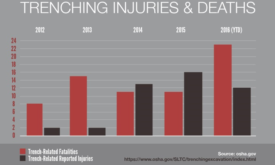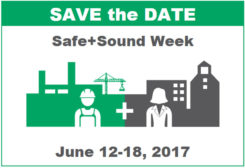News
Construction safety Q&A
All about falls, silica, cranes, overlooked training, confined spaces & best practices
March 13, 2017
APA voices concerns with American Health Care Act
Calls on Congress to maintain mental health and substance use coverage
March 13, 2017
Never miss the latest news and trends driving the safety industry
eNewsletter | Website | eMagazine
JOIN TODAYCopyright ©2024. All Rights Reserved BNP Media.
Design, CMS, Hosting & Web Development :: ePublishing









